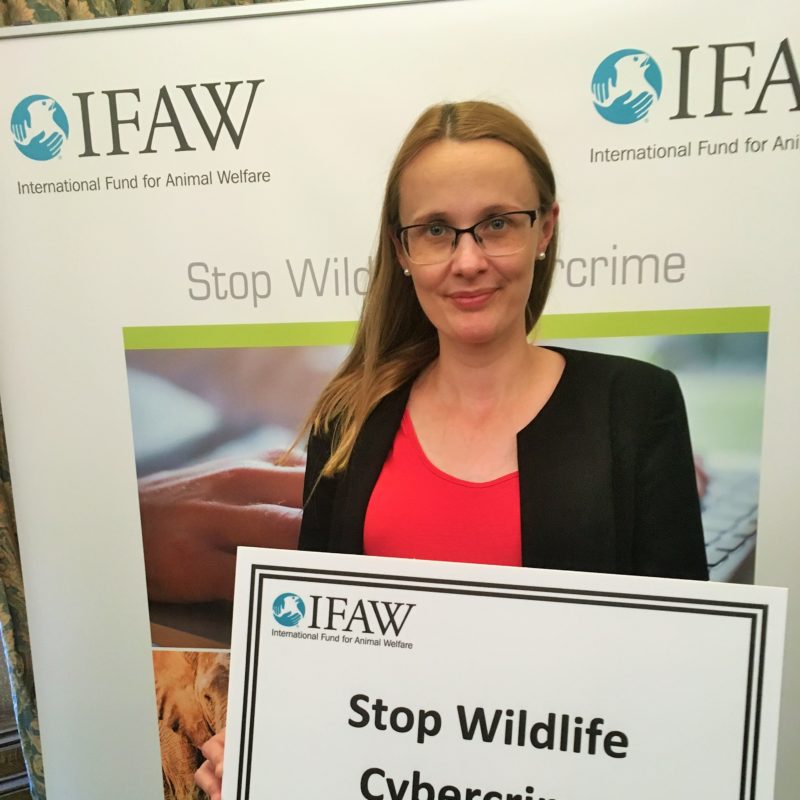Cat Smith Working for Lancaster and Wyre

Cat is lending her support to calls for an end to online trade in live wildlife and their parts, which is driving endangered species further towards extinction.
A new report released by the International Fund for Animal Welfare (IFAW) highlights the vast quantity of live animals and their body parts available for sale online and the threat this poses to the future survival of many species.
Over a six-week period in 2017, with a focus on France, Germany, Russia and the United Kingdom, IFAW’s team of experts and researchers discovered that thousands of live, endangered and threatened animals as well as animal products were being offered for sale online. IFAW identified 5,381 advertisements spread across 106 online marketplaces and social media platforms, cataloguing 11,772 endangered and threatened specimens worth £3,044,974.
Online trade in ivory or suspected ivory remains a persistent problem, with almost one-fifth of the advertisements found offering ivory or suspected ivory products. Additionally, live animals made up the overwhelming majority (80%) of specimens, demonstrating the popularity of owning exotic animals such as tortoises, parrots, owls, primates and even big cats as pets. Reptiles, particularly live tortoises and turtles, were by far the most prevalent, representing 45% of wildlife specimens identified in the report. Almost a quarter of the remaining specimens were birds, including endangered African grey parrots. Specimens from other mammals including cats, primates, bears and rhinos were also identified.
Philip Mansbridge, UK Director of IFAW, said: “We all have a part to play in protecting our most threatened wildlife, whether as consumers, politicians or those involved in running the online marketplaces where so much of this trade in live animals and animal products takes place. IFAW remains as committed as ever to fighting the scourge of wildlife cybercrime and we will continue to bring together key players to do so. Our investigation shows ivory is still a major component of online wildlife trade and so it is vital that the UK ivory ban Bill, now introduced to Parliament, progresses swiftly into legislation.”
In the UK, IFAW found 1,194 posts advertising 2,456 wildlife specimens across 35 online marketplaces and three social media platforms, with a value of £741,676. More than three quarters of specimens offered for sale were live animals. Turtles and tortoises were the most common specimens offered for sale in the UK and researchers also identified a large number of birds and owls for sale, including African grey parrots.
While the UK has seen a significant drop in the number of ivory advertisements compared to items highlighted in IFAW’s 2014 wildlife cybercrime report, Wanted – Dead or Alive, UK ivory advertisements were frequently found to use code words, suggesting that while progress has been made in reducing online ivory sales, some traders are changing the language of posts to evade detection.
Cat said: “I am very pleased to support IFAW’s work to stop wildlife cybercrime. With so many of our most endangered species at a tipping point it is important that we all do our part to stop this trade and protect our wildlife, from elephants to rhinos to parrots.”
Distinguishing legal from illegal trade is extremely challenging for researchers, enforcers and online marketplaces alike. IFAW’s research and close work with online marketplaces shows that by partnering with them, there can be success in driving down trade.
